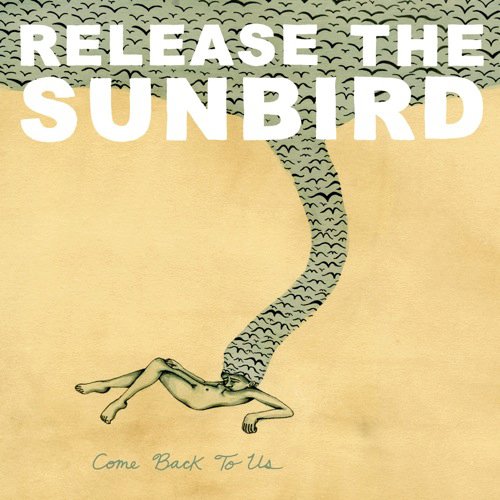Release The Sunbird is the new project by Zach Schwartz of Rogue Wave. It’s rooted in the regions of baroque and folk and distinguished from Schwartz’s previous work by sounding more like an acoustic, singular effort rather than the work of an entire band. Come Back To Us is the first release of this new moniker, and it’s best described as quaint and inoffensive. As you would expect from a folk-based release, there are a lot of acoustic guitars, pretty melodies and soft, often ambiguous vocals and lyrics that are often soothing and nostalgic.
The album comes into its own during tracks such as “Always Like the Son.” Here, soft and simple melodies are punctuated with pretty vocals that strum away calmly in a manner best befitting Fleet Foxes. This track in particular carries a lovely rhythm and opens up near the 2-minute mark into a delightful harmony that shows off the better aspects of this release. “A New You” begins with a spoken-word introduction of “One, two, three,” reminding one of Sufjan Steven’s “For The Widows in Paradise,” before blooming into a sombre and lovely little musing that hauntingly chills the very air around each chord. During these moments, the noticeable potential of Release The Sunbird is evident.
Not entirely devoted to simple acoustic songs, “Back Strikes Back” is an optimistic and jangly celebration with bizarrely heavy beats. They make an acceptable change to what can at times be repetitive and similar-sounding tracks, and ensure that the album rarely suffers from tedium. Not quite as successful is the final track, “Outlook Anonymous,” which dabbles with electronic synthesisers that certainly create a mood, but seem somewhat out of place. It’s not a bad track by any means, and it could be seen as a decent indicator of where Sunbird may go next. Nevertheless, it does seem like a somewhat odd inclusion on an otherwise fairly predictable and consistently sounding album.
Apart from little instrumental interludes added into various tracks and subtle musical additions, these songs maintain their stripped-down atmosphere, for better or for worse. At times repetitive, with songs such as “Running Away From Me” sounding nice enough but adding little to the album, Come Back To Us could have benefited from being a little shorter. Although not obscenely long, thirteen tracks of relatively similar-sounding music can at times grate. There are undoubtedly some excellent songs here, including the title track, that overlaps vocals nicely between the members, and the technical ability of the band is clearly one of its greatest assets. Given a little refinement, Release The Sunbird could one day be as essential as Bon Iver and Fleet Foxes. As it stands, they’re a happy alternative, which is in itself as encouraging as the quality of this début.

